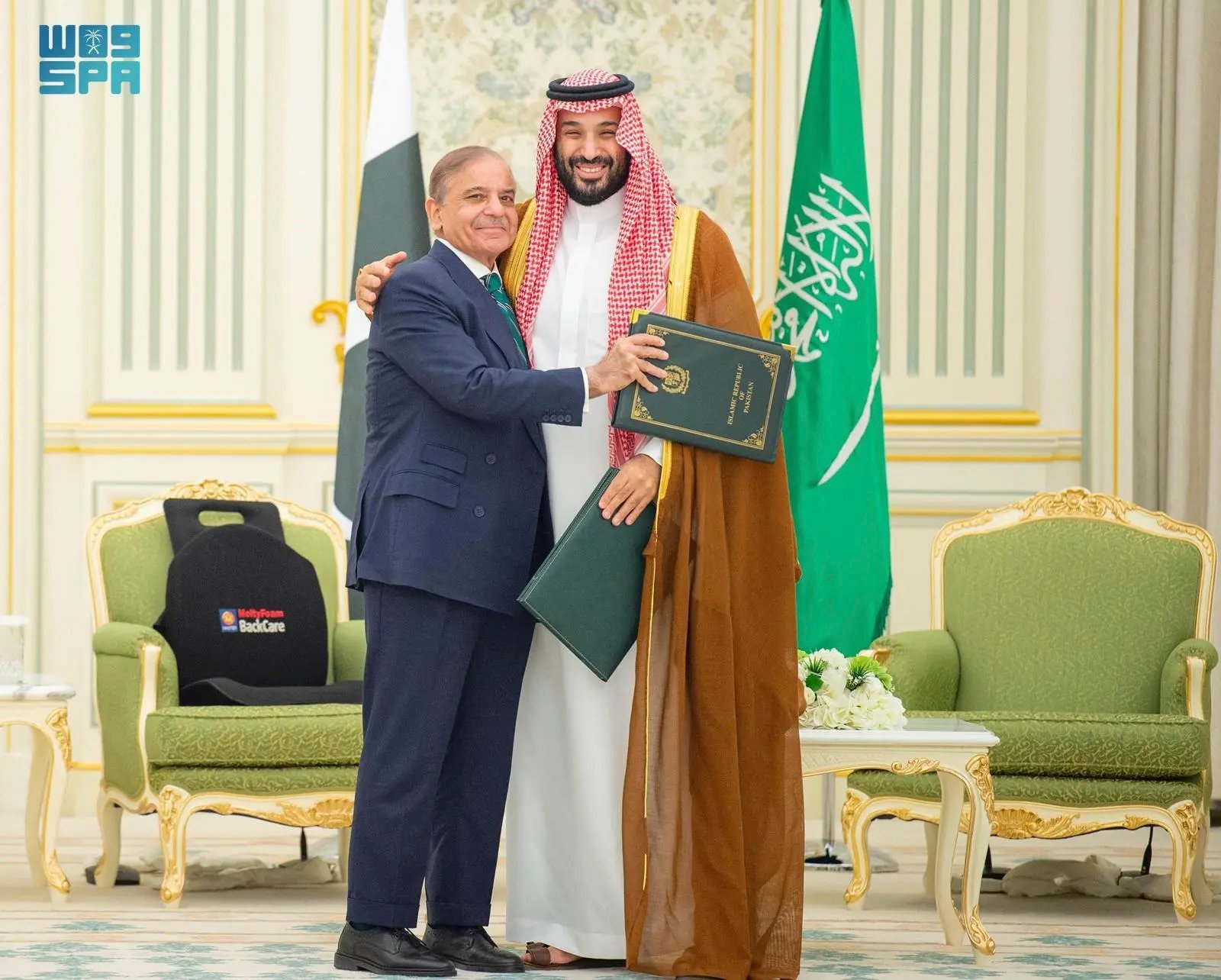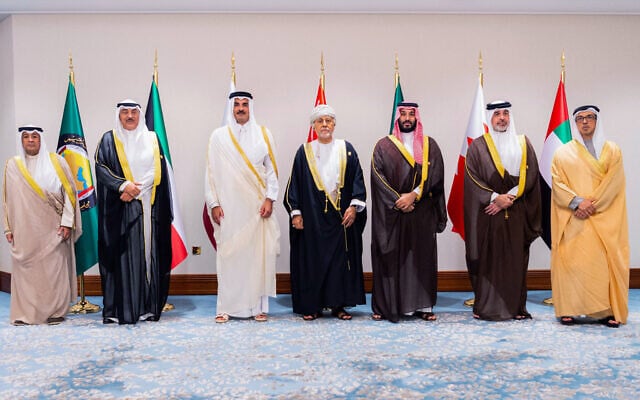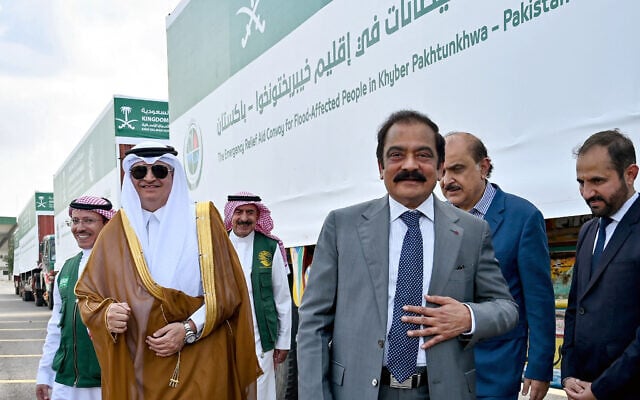


Saudi Arabia and nuclear-armed Pakistan have signed a mutual defense pact that regards any attack on either nation as an attack on both in the wake of Israel’s strike on leaders of the Hamas terror group in Qatar.
The Kingdom of Saudi Arabia has long had close economic, religious and security ties to Pakistan, including reportedly providing funding for Islamabad’s nuclear weapons program as it developed. Analysts — and Pakistani diplomats in at least one case — have suggested over the years that the kingdom could be included under Islamabad’s nuclear umbrella, particularly as tensions have risen over Iran’s atomic program.
But the timing of the pact appeared to be a signal to Israel, which is widely acknowledged to be the Middle East’s only nuclear-armed state and has been fighting a multifront war in Gaza, Iran, Lebanon, Syria, and Yemen that began with Hamas’s October 7, 2023, invasion and massacre.
Israel did not immediately acknowledge the pact, which was the first firm defense decision made by a Gulf Arab country since the Qatar attack last week. The United States, which has long been the security guarantor for the Gulf states, also did not immediately acknowledge the agreement.
Israel’s strike in Qatar last week targeted a meeting of Hamas’s top leadership, but while five members of the terror group were confirmed to have been killed in the attack, Israel has increasingly come to believe at least some of the intended targets were not. A member of Qatar’s security forces was also killed.
Following the attack, the Arab League and the Organisation of Islamic Cooperation held a joint session, demanded a review of Israel ties, and urged member states to coordinate steps to suspend Israel from the United Nations.
Saudi Arabia’s powerful Crown Prince Mohammed bin Salman signed the pact on Wednesday with Pakistan’s Prime Minister Shehbaz Sharif.
While not specifically discussing the bomb, the agreement states “any aggression against either country shall be considered an aggression against both,” according to statements issued by both Pakistan’s Foreign Affairs Ministry and the state-run Saudi Press Agency.
“This agreement… aims to develop aspects of defense cooperation between the two countries and strengthen joint deterrence against any aggression,” the statement said.
Pakistan and Saudi Arabia have a defense relationship stretching back decades, in part due to Islamabad’s willingness to defend the Islamic holy sites of Mecca and Medina in the kingdom. Pakistani troops first traveled to Saudi Arabia in the late 1960s over concerns about Egypt’s war in Yemen at the time. Those ties increased after Iran’s 1979 Islamic Revolution and the kingdom’s fears of a confrontation with Tehran.
Pakistan developed its nuclear weapons program to counter India’s atomic bombs. The two countries have fought multiple wars against each other and again came close to open warfare after an attack on tourists in April in Indian-controlled Kashmir.
On Thursday, India’s Foreign Ministry acknowledged the pact being signed and said it “will study the implications of this development for our national security as well as for regional and global stability.” Saudi Arabia also maintains close ties to India.
Neither Pakistan nor Saudi Arabia responded to questions from The Associated Press on Thursday on whether the pact extended to Islamabad’s nuclear weapons arsenal.
Saudi Arabia has sought US assistance to advance a civilian nuclear power program, in part with what had been a proposed diplomatic recognition deal with Israel prior to the 2023 Hamas attack. That could allow Saudi Arabia to enrich uranium in the kingdom — something that worries nonproliferation experts as spinning centrifuges opens the door to a possible weapons program.
Prince Mohammed has said the kingdom would pursue a nuclear weapon if Iran had one. It is already believed to have a domestic ballistic missile program, which can be a delivery system for a nuclear weapon. However, Saudi Arabia is a member of the Nuclear Nonproliferation Treaty and isn’t known to have moved toward acquiring the bomb through its own work.
Before the defense pact was signed, Iran dispatched Ali Larijani, a senior political figure who now serves as the secretary of the country’s Supreme National Security Council, to visit Saudi Arabia. That may have seen the kingdom acknowledge the pact to Tehran, with which it has had a Chinese-mediated détente since 2023.



